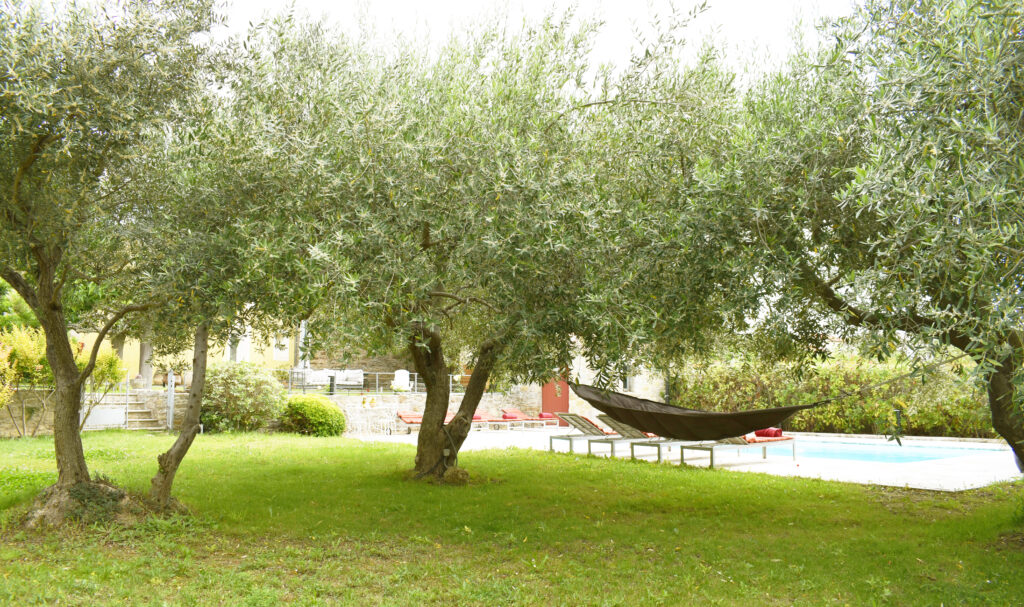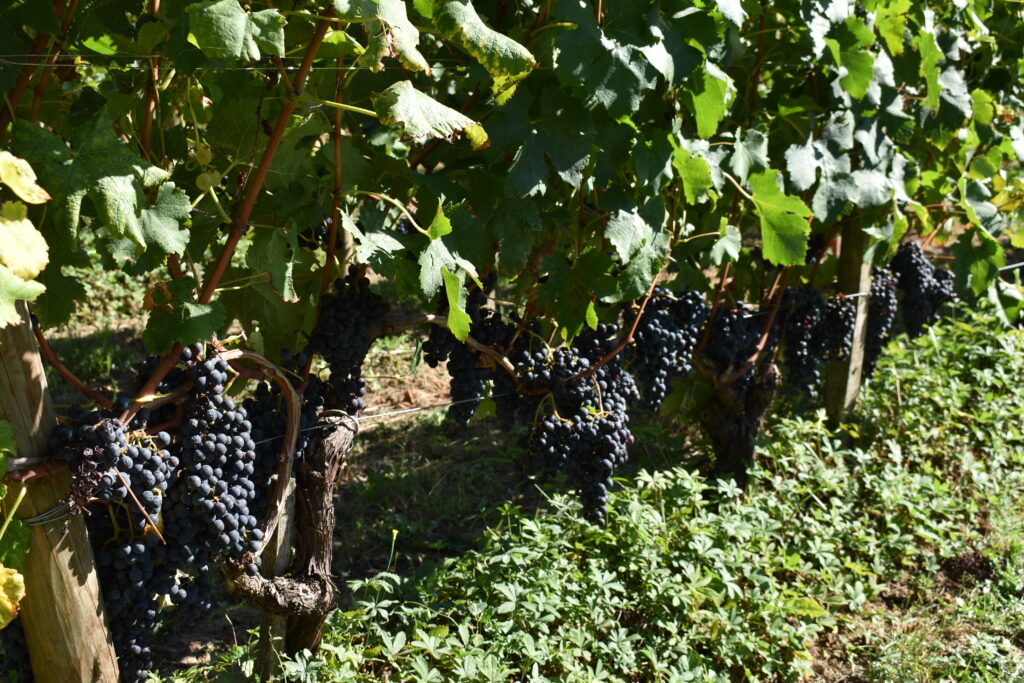by Isabella Sharipova-Williams, published 18th June 2024

Occitania is a cultural, historic, and linguistic region that essentially encompasses the entirety of southern France. It is broadly within the 45th parallel, or the Midi. The French government has termed the administrative region formed of the fusion of Languedoc-Roussillon and Midi-Pyrenées “Occitanie”. However, the truth is that this comprises less than a third of the historic region. This includes Nouvelle-Aquitaine, Provence-Alpes-Côte d’Azur, Auvergne-Rhône-Alpes, and Centre-Val de Loire within France, the Val d’Aran in Catalonia, the Valadas Occitanas, parts of Liguria, and La Gàrdia in Italy, and Monaco.
The region’s language is its namesake – Occitan, or the lenga d’òc, translated as the “language of yes”, as òc means “yes” in Occitan. French, a language which hails from the north of France, is a langue d’oïl. This also, helpfully, translates as “language of yes” – oïl is an old word for oui. Both are Gallo-Romance languages, descended from Latin, with òc coming directly from the Latin hoc (this), and with oïl derived from hoc illud est (this it is).
Origins
Although the Romans conquered (and imposed their language upon) all of France (then Gaul), the conquest occurred in two waves: First the Romans conquered the South (and called it Provincia (province), from which we now get Provence, and is in part why the Parisians say anything outside of the capital is en province). They then progressed to the North.
After the fall of the Roman Empire, Germanic tribes (notably the Franks) invaded the North of France, who left their imprint on the language. In the South, Occitan underwent little to no Germanic influence.
Middle Ages
Occitan enjoyed a prestigious reputation as the language of the troubadours and their female counterparts, the trobairitz. Some old Occitan works that have survived to this day are Guiraut de Bornelh’s Reis glorios, and Beatritz de Dia’s A chantar.
The region was politically distinct from the North. This was in the days when dukes, counts and other lords where very much kings of their lands, under feudalism. They were nominally vassals to the King of France. This meant they promised to fight for the king in exchange for his protection if they should ever be attacked. However, they were, in fact, powerful enough to hold their own.
Southern society allowed women to rise to positions of power, and work, too. It was a liberal and tolerant society, and the lords seldom fought amongst themselves, so it was also relatively peaceful. The lords’ love of poetry and art meant that this flourished, and many of them were powerful patrons of such.
Occitania was culturally distinct in the fact that it was also religiously distinct – with the age of the troubadours and fin’amor (courtly love) came also the age of the Cathars.
Catharism was a dualist sect whose members called themselves “the Good Christians”. They believed that all of the physical world was the domain of the Devil, and all of the spiritual world was under the rule of God. By extension, the most devout were antinatalists and pescatarians.
I say “the most devout” because they had a two-tiered system of religion, in which there were the Perfects (the most devout) and the credentes (believers). The credentes could live relatively “sinfully” until they felt death was near, at the which point they would receive the consolamentum (baptism and absolution from sin) from a Cathar priest, assuring their soul’s salvation. The Perfects received the consolamentum very much before their deathbed, and had to lead irreproachable lives from thereon out. Only Perfects could become priests.
The Albigensian Crusades
If courtly love had upset the Catholic Church, Catharism enraged it, for the new religion enjoyed much popularity and protection by the Southern lords. Even Eleanor of Aquitaine is said to have been a Cathar sympathiser. The Pope eventually persuaded the French King Philippe II to launch a crusade against the Cathars and the nobles who protected them, promising the rich and fertile land to any knight who could despoil it.
And so the Northern French nobles descended upon Occitania, and laid much of it to waste. Some historians argue that the South was already in decline, but, if it was, this war cemented it. Arnaud Amalric, a Cistercian abbot at the helm of this enterprise, best summarised the carnage at the Massacre of Béziers:
Amalric’s soldiers asked him how to distinguish between the “faithful” and the “heretics”. He answered “Kill them all! The Lord will know his own!”.
The ruthless Northern lord Simon de Montfort the Elder and his militantly Catholic wife, Alix, assumed the titles of Viscount and Viscountess of Albi, Béziers, and Carcassonne in 1213, and the Count and Countess of Toulouse in 1215.
Catharism survived into the 14th century, along with an early Protestant sect called Waldensianism, in the Ariège. In the 1300s, the Bishop of Pamiers, Jacques Fournier, redoubled the efforts of the Inquisition. This effectively ended its history.
The records from his extensive questioning of the suspected “heretics” survived in the Vatican, and were the basis of Emmanuel Le Roy Ladurie’s poignant microhistorical book, called Montaillou. The South continued the tradition of cultural and religious dissent, as it later became a hotbed for the Huguenots, or French Protestants, during the 16th and 17th Centuries. Before the Crusade, the South held a relatively enlightened tolerance for other Abrahamic religions, also.
The decline of the language
In 1539, François I declared that the official language of administration in France should henceforth be in French. We may consider this the beginning of the decline of the Occitan language.
It did enjoy a literary revival in the Renaissance, but the centralist policies under Louis XIV’s reign launched another offensive on the lenga. The king’s minister Jean-Baptiste Colbert declared that French children must be taught French in order for them to be loyal subjects to the King. The French language and its national destiny were irrevocably tied, as it was “chosen”, “pure”, and “prestigious”.
This was the age of the birth of the pedantic standardisation efforts of France’s newly-formed Académie Française, a child of the fashionable intellectualism following the Renaissance, and leading into the Enlightenment. This was an age of essays, plays, poetry, and literary salons, within the Northern capital. The word patois came into being in the 17th century.
The Larousse Dictionary defines patois as “an essentially oral linguistic system, used in a small area and in a specific community (generally a rural one), and perceived by its users as inferior to the official language”. Yet, there are quite a few French words that have come from Occitan. For instance, canaille (from canalha, meaning “a pack of dogs”) and soubrette (from soubreta, meaning “coy”).
The language plummeted following the introduction of Jules Ferry’s school reforms. These ensured secular, free, and obligatory education for all primary school children, and were, of course, national. Teachers punished their pupils for using their regional language in class (as always, the teachers degraded it to a patois). This instilled a shame which led, and still leads, to a schizoglossia called la vergonha. Before the French Revolution of 1789, just over 10% of the French population spoke the French language; now, every French citizen is francophone. Even speaking French, the Southern French have very distinct accents, which Northeners tend to ridicule.
Future
Today, an estimated 2 million out of France’s population of nearly 70 million people speak Occitan. As such, Occitan is an endangered language. Although eligible for protection under the European Charter for Regional or Minority Languages, to grant Occitan official status remains unconstitutional. The French government holds the same stance on any other of its regional languages. Thus, the only official language of France is French. Regional languages and dialects – particularly sub-dialects – are still often qualified as “patois“.
Non-government bodies such as the Institut d’Estudis Occitans and Lou Felibrige (founded by Frédéric Mistral in 1854) continue to support the Occitan language and culture, and Occitan-medium schools, calandretas, also exist. The EU does provide some funding to such bodies.
I have given you a sad, but hopeful, history of a beautiful region, characterised by the once-powerful nobels, the intellectuals, the artists, and the rebels that inhabited it. I hope you go and discover it for yourselves.
HER has four properties in the South of France:
Les Oliviers, Les Pins, and La Petite Maison, in the Minervois, near Carcassonne, very much in old Cathar country,
And the rooms of Le Clos Saint-Emilion, in the old domain of the brilliant Alienòr d’Aquitània.

Sources
Contributeurs de Wikipédia, "Occitanie (région culturelle)," Wikipédia, l'encyclopédie libre, https://fr.wikipedia.org/w/index.php?title=Occitanie_(r%C3%A9gion_culturelle)&oldid=215791611 (Page consultée le juin 18, 2024).
Wikipedia contributors, "Occitania," Wikipedia, The Free Encyclopedia, https://en.wikipedia.org/w/index.php?title=Occitania&oldid=1224784585 (accessed June 18, 2024).
Contributeurs de Wikipédia, "Occitan," Wikipédia, l'encyclopédie libre, https://fr.wikipedia.org/w/index.php?title=Occitan&oldid=216054420 (Page consultée le juin 18, 2024).
Wikipedia contributors, "Occitan language," Wikipedia, The Free Encyclopedia, https://en.wikipedia.org/w/index.php?title=Occitan_language&oldid=1227818397 (accessed June 18, 2024).
“Lo Domègeografic de L’occitan.” n.d. Occitanet.free.fr. Accessed June 18, 2024. http://occitanet.free.fr/en/geodom.htm.
"Pourquoi Parlons-Nous Français ? 1 200 Ans de Métamorphoses." 2024. Historia, no. 927 (Mars): pp.36-44, 46–61.
“Occitan-Speakers in France.” n.d. Minority Rights Group. Accessed June 18, 2024. https://minorityrights.org/communities/occitan-speakers/.
Nast, Condé. 2001. “Good and Evil.” The New Yorker. July 30, 2001. https://www.newyorker.com/magazine/2001/08/06/good-and-evil.
Wikipedia contributors, "Catharism," Wikipedia, The Free Encyclopedia, https://en.wikipedia.org/w/index.php?title=Catharism&oldid=1227878022 (accessed June 18, 2024).
Wikipedia contributors, "Albigensian Crusade," Wikipedia, The Free Encyclopedia, https://en.wikipedia.org/w/index.php?title=Albigensian_Crusade&oldid=1229867854 (accessed June 18, 2024).
Wikipedia contributors, "Arnaud Amalric," Wikipedia, The Free Encyclopedia, https://en.wikipedia.org/w/index.php?title=Arnaud_Amalric&oldid=1212249046 (accessed June 18, 2024).
Wikipedia contributors, "Simon de Montfort, 5th Earl of Leicester," Wikipedia, The Free Encyclopedia, https://en.wikipedia.org/w/index.php?title=Simon_de_Montfort,_5th_Earl_of_Leicester&oldid=1229383020 (accessed June 18, 2024).
Wikipedia contributors, "Alix de Montmorency," Wikipedia, The Free Encyclopedia, https://en.wikipedia.org/w/index.php?title=Alix_de_Montmorency&oldid=1220741324 (accessed June 18, 2024).
Wikipedia contributors, "Waldensians," Wikipedia, The Free Encyclopedia, https://en.wikipedia.org/w/index.php?title=Waldensians&oldid=1230332780 (accessed June 18, 2024).
Le Roy Ladurie, Emmanuel. 1990. Montaillou : Cathars and Catholics in a French Village, 1294-1324. London: Penguin.
Wikipedia contributors, "Centralisation," Wikipedia, The Free Encyclopedia, https://en.wikipedia.org/w/index.php?title=Centralisation&oldid=1195822291 (accessed June 18, 2024).
Contributeurs de Wikipédia, "Centralisation," Wikipédia, l'encyclopédie libre, https://fr.wikipedia.org/w/index.php?title=Centralisation&oldid=214666663 (Page consultée le juin 18, 2024).
Contributeurs de Wikipédia, "Jean-Baptiste Colbert," Wikipédia, l'encyclopédie libre, https://fr.wikipedia.org/w/index.php?title=Jean-Baptiste_Colbert&oldid=216126711 (Page consultée le juin 18, 2024).
Larousse, Éditions. n.d. “Définitions : Patois - Dictionnaire de Français Larousse.” www.larousse.fr. https://www.larousse.fr/dictionnaires/francais/patois/58677.
“When France Barely Spoke French - PrimeGroupUSA.” 2023. December 18, 2023. https://primevoices.com/blog/when-france-barely-spoke-french/.
Wikipedia contributors, "Languages of France," Wikipedia, The Free Encyclopedia, https://en.wikipedia.org/w/index.php?title=Languages_of_France&oldid=1218000115 (accessed June 18, 2024).
“Confederacion Calandreta | Ensenhament Laíc Immersiu Occitan.” n.d. Calandreta.org. Accessed June 18, 2024. https://calandreta.org/.